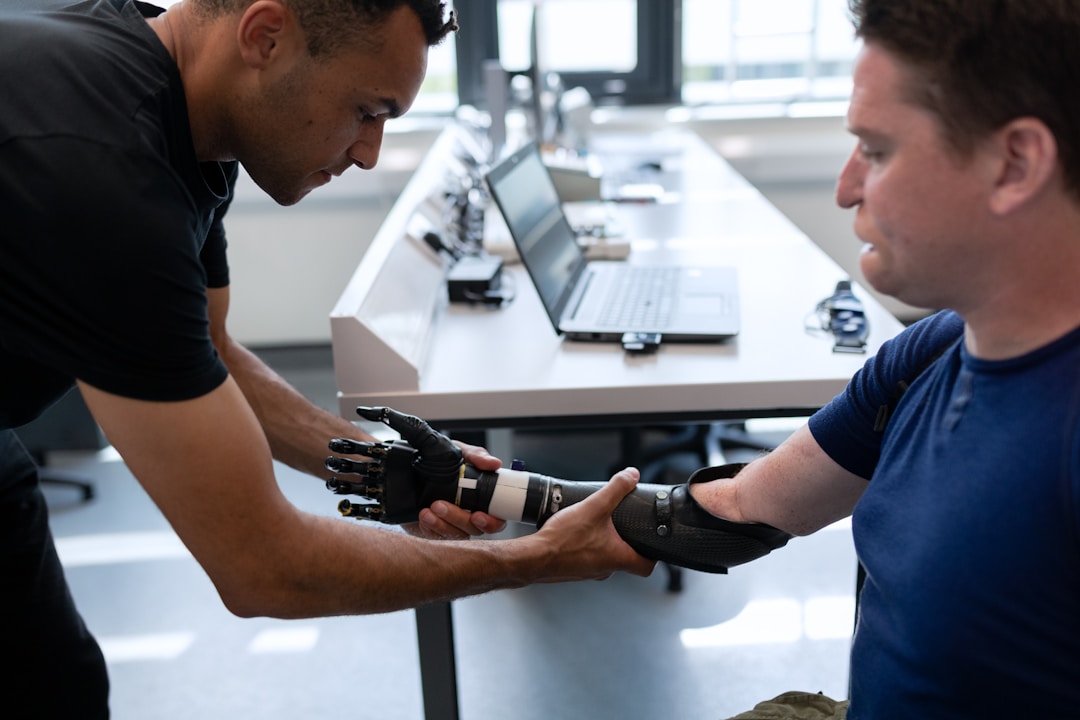Invasive medical procedures are major surgeries. These surgeries generally involve accessing internal organs, nerves, or bones. People get major surgery to remove growths, treat medical conditions, or repair damage to their bodies. Common types of major surgeries include cesarean sections, hysterectomies, open-heart surgery, and joint replacements.
It can take weeks to months to recover from major surgery. Overexerting yourself after surgery can aggravate your condition and prevent your body from healing correctly. While your doctor may recommend rest and medications after your surgery, you may be wondering if therapy would be beneficial as well. Read on to explore the types of therapy you might consider after you have major surgery.
Should you see a mental health professional?

There are multiple reasons you could struggle with mental health issues following surgery. Surgery can confront you with your mortality, especially if you had open-heart surgery or your surgeon removed a cancerous growth. Major surgery can trigger depression, and you may also be discouraged by your inability to engage in preferred activities. It’s also possible you’ll grieve after surgery, particularly if you had a hysterectomy and can no longer have children.
Talking to a licensed counselor or psychiatrist can help you manage your mental health after surgery. Using a therapist search makes it easy to find qualified mental health professionals near your location or counselors in the United States who offer teletherapy services. The tool prompts you to answer relevant questions and generates a list of mental health professionals offering the services you need. You may opt to pursue psychotherapy, which is also known as talk therapy. Discussing your symptoms can help you process your feelings and alleviate stress or anxiety. You could also seek cognitive behavioral therapy to identify negative behaviors and change your behaviors. It’s a good idea to research counselors near you before the first incision so that you can have an appointment lined up before you’re dealing with post-surgery discomfort.
Should you see a physical therapist (PT)?

Physical therapists are licensed medical professionals who can help those with back pain, neck pain, and other forms of discomfort. Physical therapists treat illnesses and injuries. They use physical treatments to reduce pain and help patients improve their range of motion and gross motor skills. Physical therapists can diagnose patients, develop treatment plans, and oversee physical therapy treatments. You may spend all your time working with your physical therapist or may spend some time working with a physical therapy assistant, who can teach you how to perform exercises and use assistive devices. It’s common for patients to see a physical therapist after joint replacement surgery, spinal nerve surgery, or other surgical procedures that limit their mobility.
A cervical neck surgery recovery guide will also recommend that patients see a physical therapist after cervical neck surgery. Performing exercises can expedite the healing process, enabling you to engage in everyday activities sooner. With physical therapy treatment, you may not have to wear a neck brace as long. Whether your neck surgery was prompted by anterior cervical discectomy or your need for disc replacement, surgery, and physical therapy can reduce your neck pain and improve your health.
Should you see an occupational therapist (OT)?

Like physical therapists, occupational therapists use physical exercises to promote or restore health. While physical therapists focus on gross motor activities, such as walking, occupational therapists focus on fine motor skills and daily living skills. For example, many people who’ve had a stroke need to see an OT to relearn how to perform routine tasks such as button their shirts or tie their shoes. Individuals who’ve had surgery affecting their hands, arms, and legs may benefit from working with an occupational therapist to restore their ability to use their limbs. Occupational therapists evaluate patients, create treatment plans, and oversee treatments. If you opt to see an OT, you may spend time working with the OT or an OT assistant. Both OTs and OT assistants teach you how to perform exercises and use assistive devices, such as adaptive utensils.
If you’re finding it hard to put on outfits after surgery and opting for button-free dresses, you could benefit from seeing an OT who will help you redevelop your fine motor skills.
Should you see a recreational therapist?

Like PTs and OTs, recreational therapists work with patients affected by illness and injury, including those who’ve had a significant surgical procedure. Whether you’ve had spinal surgery, neck surgery, knee replacement surgery, or brain surgery, you can benefit from seeing a recreational therapist. Recreational therapists develop treatment plans to help you recover from surgery and restore your ability to engage in routine activities. One of the distinctions between a recreational therapist and a PT or OT is that recreational therapists prioritize your interests when developing a treatment plan. For example, if you enjoy swimming, pool activities may be a routine part of your program. Alternatively, if you enjoy painting, your recreational therapist may emphasize art as the first step in your therapy plan.
Recreational therapists also focus on your mental well-being and help their patients manage stress and depression. It’s also possible you may have social anxiety following your surgery, mainly if you had a limb amputated or had a surgery that’s affected your appearance. Recreational therapists may develop a plan with strategies to help you navigate social situations, ensuring you have the coping skills you need to socialize with others.
You may be able to recover from major surgery without seeing a therapist, but there are several types of therapists that provide valuable services for those who’ve had surgery. You can benefit from seeing a mental health therapist, physical therapist, occupational therapist, or recreational therapist. These therapists can help you address mental and physical issues stemming from your surgery and implement strategies to promote your recovery.









